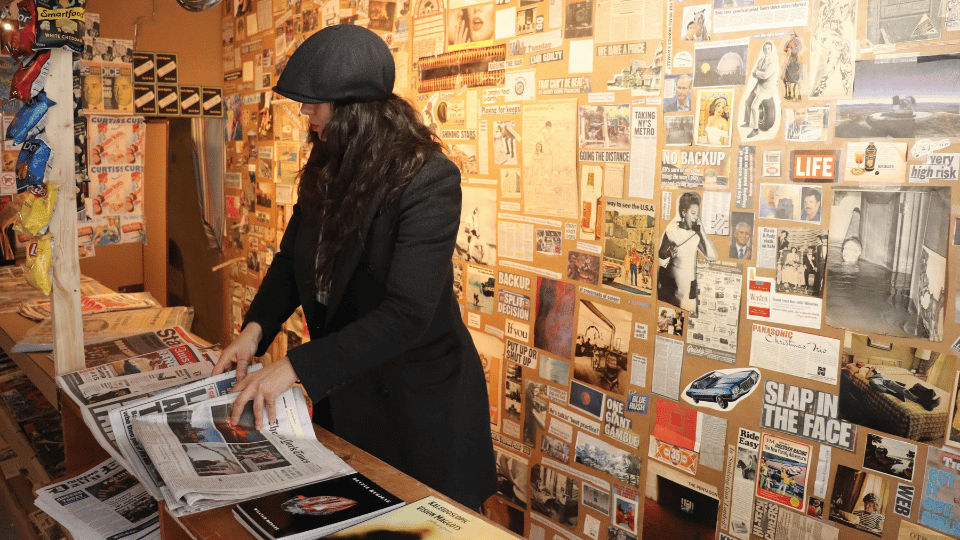Mastering Library Research: A Journalist’s Essential Resource
In the ever-evolving world of journalism, where information is readily available at our fingertips, it is easy to overlook the importance of thorough library research. While the internet has undoubtedly revolutionized the way we access information, the value of traditional library resources cannot be overstated.
As a journalist, honing your library research skills can greatly enhance the depth and accuracy of your reporting, enabling you to uncover unique perspectives and untapped sources.
1. Understanding the Role of Library Research
Library research plays a vital role in journalism by providing journalists with access to a wide range of credible and reliable sources. While the internet offers a wealth of information, it is also ripe with misinformation and bias. Libraries, on the other hand, serve as bastions of verified knowledge, housing meticulously curated collections that can be instrumental in fact-checking and ensuring the accuracy of journalistic content.
2. Navigating Library Catalogs and Databases
One of the first steps in conducting library research is learning how to navigate library catalogs and databases effectively. Librarians play a crucial role in assisting journalists in this process, offering guidance on advanced search techniques and helping them uncover relevant resources efficiently. Mastering the art of navigating these resources not only saves time but also allows journalists to unearth hidden gems that might otherwise go unnoticed in the vast sea of information.
3. Tapping into Specialized Libraries and Archives
While public libraries are excellent resources for general information, journalists should not overlook the wealth of insights offered by specialized libraries and archives. These repositories delve deep into specific subjects, providing journalists with unparalleled access to niche knowledge. Whether exploring rare manuscripts or historical artifacts, tapping into these specialized collections can add layers of richness and authenticity to journalistic endeavors.
4. Leveraging Librarians’ Expertise
Librarians are not just keepers of books; they are highly trained information professionals ready to support journalists in their quest for accurate and reliable information. Building a collaborative relationship with librarians allows journalists to tap into a wealth of knowledge. Librarians can offer insights into research methodologies, suggest relevant sources, and provide valuable context, ultimately contributing to the depth and credibility of journalistic work.
5. Staying Up-to-Date with Current News and Events
While library research often involves delving into historical archives and academic journals, it is equally important for journalists to stay abreast of current news and events. Libraries actively update their collections to reflect the ever-changing landscape, ensuring that journalists have access to the latest information. This blend of historical context with real-time updates enhances the relevance and comprehensiveness of journalistic pieces, providing a well-rounded perspective to readers.
6. Developing Critical Evaluation Skills
In an era of rampant misinformation, developing critical evaluation skills is crucial for journalists relying on library research. The ability to discern the reliability and relevance of sources ensures that journalists produce accurate and trustworthy content. By honing these skills, journalists become adept at navigating the vast landscape of information, distinguishing between credible data and misleading narratives, and ultimately upholding the integrity of their reporting.
7. Incorporating Library Research into Modern Journalism
In conclusion, library research remains an indispensable tool for journalists in the digital age. While the internet provides quick access to information, the depth, breadth, and credibility offered by libraries contribute significantly to the journalistic process. Embracing both traditional and modern research methods positions journalists to deliver well-rounded, thoroughly researched stories that stand the test of time in an ever-evolving media landscape.
Key Takeaways:
- Library research is crucial for journalists as it provides access to credible and reliable sources, ensuring accurate and unbiased reporting.
- Navigating library catalogs and databases allows journalists to refine their searches and expand the scope of their research.
- Specialized libraries and archives offer unique resources and expertise in niche topics, enhancing the depth of reporting.
- Librarians are invaluable resources who can guide journalists in their research process and provide advanced research techniques.
- Staying up-to-date with current news and events is essential for providing timely and relevant reporting.
- Developing critical evaluation skills helps journalists discern accurate and reliable sources amidst rampant misinformation.
- Incorporating library research into modern journalism enhances the quality of reporting and uncovers unique perspectives.
To further enhance your library research skills and stay ahead in the field of journalism, consider enrolling in the NYU | Modern Journalism online course and certificate program offered by Yellowbrick. This comprehensive program will provide you with the knowledge and practical skills needed to excel in the ever-evolving world of journalism. Don’t miss out on this opportunity to take your journalism career to new heights.








